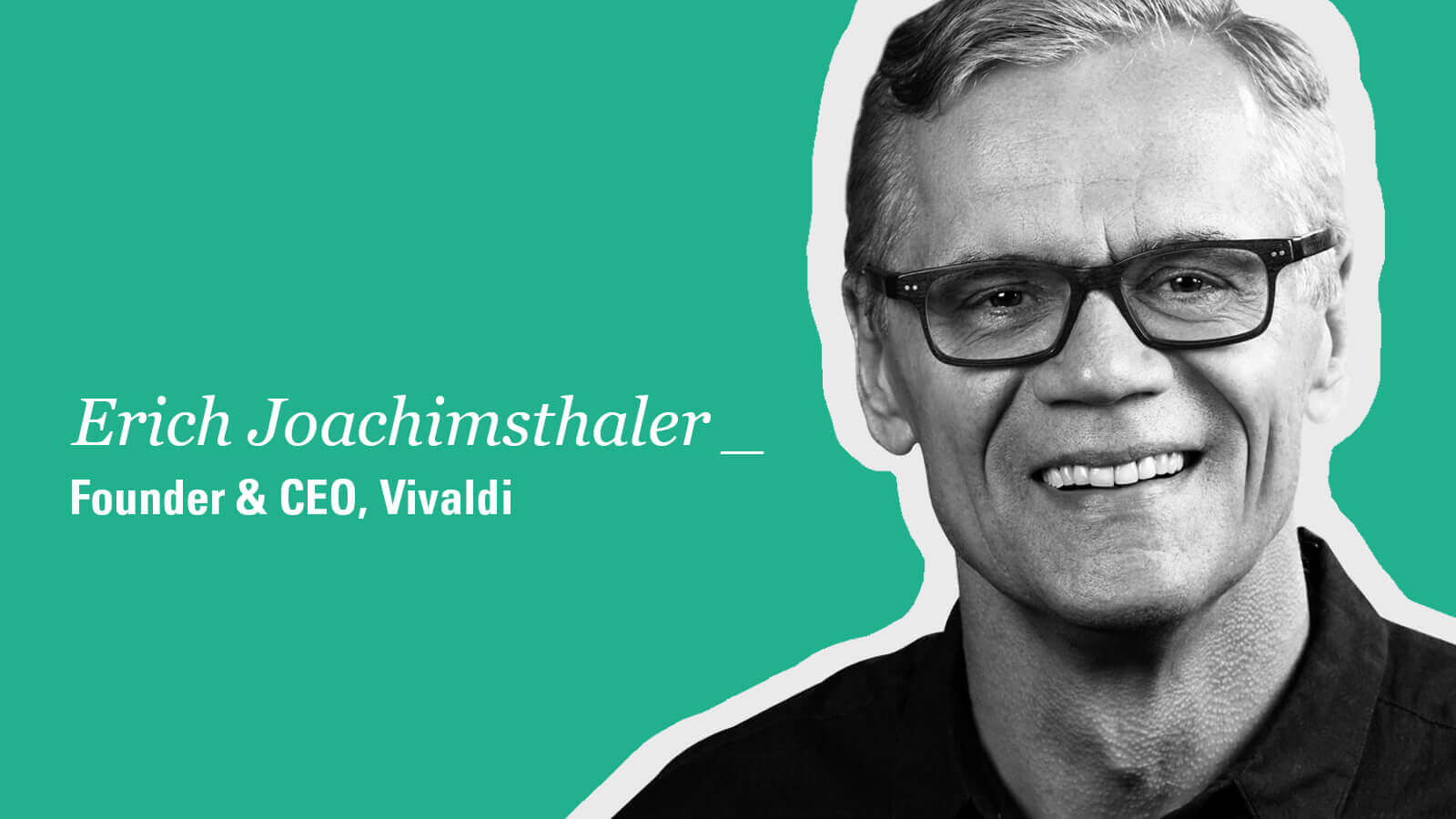In our video podcast series, The Business of Platforms, Vivaldi chats with the world’s leading marketers, thinkers, and innovators about the evolution of business and the untapped potential of platform thinking. In our inaugural episode, Vivaldi’s CMO Agathe Blanchon-Ehrsam sits with our CEO Erich Joachimsthaler for a conversation on the merits of platform businesses.
Explore the Platform Thinking Podcast Series Here
https://vimeo.com/279281268
See below for highlights from their conversation:
Q: What is a platform and how does it work?
A: Platforms are an amazing new opportunity. It’s a new way of creating value for customers. You need to start by thinking: How do we typically create value for consumers? For hundreds of years, we’ve created value through a value chain, in a sequential step of activities from R&D, manufacturing, sourcing, to marketing and selling products. We create a business that adds value and then delivers a product or service to the consumer, and for which the consumer is willing to pay an extra price. That’s a pipeline model, which is the traditional model. Platforms are not built through manufacturing, not through that linear step, platforms are built through interaction and collaboration. Platforms facilitate an interaction, a connection, through which value is created for the consumer.
Q: What’s an example of a platform?
A: The most valuable companies right now – Facebook, Apple, Netflix, Google, Amazon – are all platforms. But any other company you can imagine can also become platforms – Sephora, John Deere, and so many others.
Apple is a good example because we all know it very well. Apple has the iPhone and many other devices, but the platform part of is really the App Store. The App Store is an easy way for customers to make their iPhone useful and to do a lot of new things, and Apple started that in 2011, that’s why platforms are so recent. The value Apple creates here is for consumers, but the platform part is that on the other side, there are app developers that code and write software. Today, more than 2 million apps are on the App Store, which creates value for the app developers, because they no longer have to do marketing anymore. They can focus on what they really good at, namely creating awesome apps, so Apple has basically created a marketplace for them.
Q: As you said, Apple has removed the need for the developer themselves to market the products and build out a store, because consumers are able to download those apps. This sounds very tech-enabled. Do you need to be a tech company or in the software space in order to be a platform?
A: It is a fact that these platforms started in the tech world, but especially over the last three or four years, traditional companies and brands have realized the need to build on top of the existing business a platform business. For example, John Deere is a very traditional company. On one side, they have farmers, which are their customers, and on the other side, they have pesticides manufacturers, fertilizer manufacturers, crop manufacturers like Monsanto, buyers, and many other participants. John Deere facilitates a platform that brings together all participants in order to make a farm really productive.
Q: How is value created in John Deere’s platform?
A: The key is to understand that value is not created by John Deere, the buyers, or Monsanto alone. Value is created by the farmers who share data about their farms, their productivity, soil conditions, weather conditions, when they seeded, and data of all their practices. Because farmers collectively come together and share this data on the “John Deere Open Platform,” John Deere can use this data and work together with manufacturers like Monsanto to determine factors such as: the best type of crop, the best time of fertilizing, how deep should farmers seed their crops in order to optimize the productivity of the farm, etc. So the value is created by farmers sharing their experiences and data with John Deere.
Q: Can you explain network effects in detail?
A: Network effects happen when a company’s product becomes more valuable as more people use it and participate in the network. The more users the network has, the more valuable the data becomes to every participant. For example, the more farmers participate in John Deere’s network, the more data there is, and the more value is added to every platform participant. The beautiful part of the network effect is that it scales exponentially, which is why I am a big believer in power of platforms.
Q: Would you say that the platform opportunity is for companies across industries or are there specific spaces in which platforms have most potential?
A: Right now we are still in the early stages of that evolution, but we see very traditional companies, such as ones in the metal manufacturing, steel distribution, industrial gases space, that have adopted platforms. So platforms are moving across industries and categories, and is solving some important problems and challenges that companies, industries and society at large have.
Tune into more of The Business of Platforms podcast here. If you’d like to learn more about Vivaldi’s platform strategy offering, contact us at hello@vivaldigroup.com.
